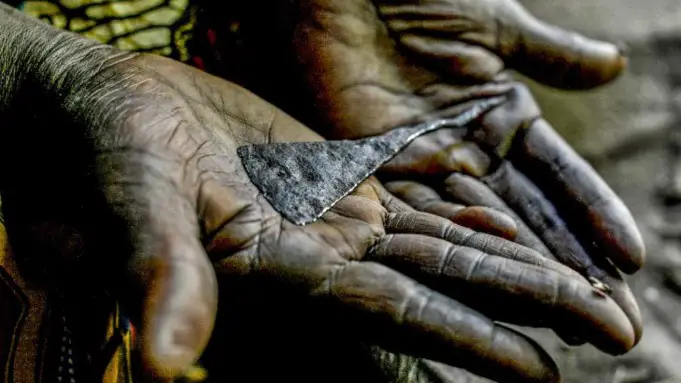Female Genital Mutilation or circumcision has been defined by World Health Organization as “all procedures involving partial or total removal of the external female genitalia or other injury to the female genital organs whether for cultural or other non-therapeutic reasons.”
Despite modernization, advanced health technology and knowledge and this act being internationally recognized as violation of the human rights of girls and women, it is estimated that across the globe more than 125 million girls and women have undergone female circumcision; and United Nations International Children’s Emergency Fund (UNICEF) said that from this number Nigeria accounts for about 33 million circumcised females.
According to a 2015 Vanguard report, it was noted that six Nigerian states are involved in this unhealthy act of female genital mutilation and most times the equipment used endangers the health of the person concerned because they are sterilized and crude.
Female genital mutilation or female genital cutting is of four types:
- Type 1 which involves partial or total cutting of the clitoris.
- Type 2 which involves partial or total cutting of the clitoris and labia minora without touching the labia majora.
- Type 3 which involves narrowing of the vagina opening by by cutting and appositioning the labia minora and majora without cutting the clitoris. the cut areas are stich or held together for a length of time by tying the girl’s legs with rope to create a covering seal. A liitle opening is left for urination and menstruation and this is the most severe form of female geneital mutilation.
- Type 4 which involves piercing, pricking, incising, scraping and cauterization. So what are the dangers of this unhealthy and discriminatory act?
The dangers of this illegal act have both short and long term complications; short term effects/complications are bleeding, pain, shock, injury, urinary retension, infection, dislocation and failure to heal while long term complications are recurrent UTIs, chronic pelvic pains, infertility, sexual complications, heavy bleeding during childbirth, sepsis, vesicovaginal fistula (VVF), infertility, depression, social problems, difficulty passing urine and menstruating and increased risk of HIV and AIDS.
Earlier this year, Leadership Initiative for Youths Empowerment (LIFE), initiated a sensitization programmes to promote a society where young people live healthy and responsibly lives, free from the ravages of diseases and discrimination, with social equity for all.
During the event Dr. Temitope Ajayi, a public health doctor at Isolo Primary Healthcare spoke about female genital mutilation and she said that female genital circumcision causes prolonged labour during childbirth, she added that circumcised women can only put to bed through assisted childbirth which cause injuries for the baby and the mother.
“”Because of hole created in the vagina during circumcision the woman will develop vesico vaginal fistula during child birth which is not advisable because it will cause a lot of pains for the woman. It can cause psychiatric problem and make some women to commit suicide because the woman is not happy always.
“Female genital circumcision causes depression, economic and social problems, which will affect Nigeria’s cultural value and development of the country. It is harmful and once a woman is circumcised physically she is not healthy” she said.
The government needs to step in and take drastic measures against this act and thereby protecting the health and dignity of Nigerian girls and women.
Sources:
- http://www.who.int/mediacentre/factsheets/fs241/en/
- http://www.who.int/reproductivehealth/topics/fgm/health_consequences_fgm/en/
- https://guardian.ng/features/health-implication-of-female-genital-circumcision/
- https://www.nigerianbulletin.com/threads/dangers-of-female-genital-mutilation.223392/
- https://www.vanguardngr.com/2015/09/six-states-in-nigeria-that-still-practice-female-genital-mutilation/












